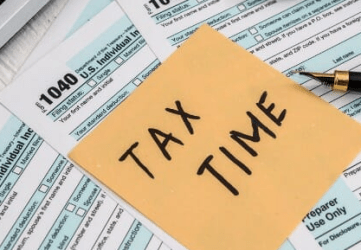Did you know that innocent spouse relief can relieve you from paying additional taxes if your spouse understated taxes due on your joint tax return and you didn’t know about the errors? This relief can be a lifesaver for many who find themselves in financial trouble due to mistakes or intentional actions by their spouse, especially in Oregon.
This article is sponsored by the tax professionals at the Law Office of Jason Carr. Contact the Law Office of Jason Carr. Call us at 888-661-6583 for assistance.
What is Innocent Spouse Relief?
Innocent spouse relief is a provision by the IRS that allows one spouse to be absolved from paying additional taxes, interest, and penalties if their partner improperly reported items or omitted items on their joint tax return. This relief can be crucial for individuals who were unaware of these inaccuracies and are now facing unexpected tax liabilities in Oregon.
Who Qualifies for Innocent Spouse Relief?
To qualify for innocent spouse relief, you must meet the following criteria:
- You filed a joint return which has an understatement of tax due to erroneous items (such as unreported income or incorrect deductions) of your spouse.
- You did not know and had no reason to know that there was an understatement of tax when you signed the joint return.
- Taking into account all the facts and circumstances, it would be unfair to hold you liable for the understatement of tax.
- You and your spouse have not transferred property to one another as part of a fraudulent scheme.
For more detailed information on qualifications, you can visit the IRS Topic No. 205 – Innocent Spouse Relief.
How to Apply for Innocent Spouse Relief
Applying for innocent spouse relief involves several steps:
- File Form 8857, Request for Innocent Spouse Relief. You can find the form here.
- Provide all requested documentation and evidence to support your claim.
- Respond promptly to any IRS inquiries or additional information requests.
The process can be complex and time-consuming, but the tax professionals at the Law Office of Jason Carr can help guide you through it to ensure your claim is handled efficiently and accurately.
Benefits of Innocent Spouse Relief
The primary benefit of innocent spouse relief is the potential removal of tax liabilities that were unfairly attributed to you. This can prevent wage garnishments, tax liens, and other collection activities by the IRS. Additionally, it can help protect your credit score and financial stability.
FAQs about Innocent Spouse Relief
1. How long do I have to apply for innocent spouse relief?
You must file Form 8857 no later than two years after the date the IRS first attempted to collect the tax from you.
2. Can I apply for innocent spouse relief if I am divorced?
Yes, you can apply for innocent spouse relief if you are divorced, separated, or still married. Your marital status does not affect your eligibility.
3. What if the IRS denies my request for innocent spouse relief?
If your request is denied, you have the right to appeal the decision. The Law Office of Jason Carr can assist you with the appeals process to improve your chances of success.
Get Help from the Law Office of Jason Carr
Dealing with the IRS can be overwhelming, especially when faced with unexpected tax liabilities. The Law Office of Jason Carr specializes in helping individuals navigate the complexities of tax laws, including innocent spouse relief. Our experienced tax professionals can assist you in understanding your options, preparing your application, and ensuring that your rights are protected throughout the process.
This article is sponsored by the tax professionals at the Law Office of Jason Carr. Contact the Law Office of Jason Carr. Call us at 888-661-6583 for assistance. By working with a tax professional at the Law Office of Jason Carr, you can ensure that your tax situation is handled efficiently and accurately. Services include: audit defense, unfiled tax returns, assisting with all IRS notices, IRS transcripts, offer in compromise negotiations, innocent spouse, multiple years of tax preparation, removing tax liens, stopping IRS levy, crypto taxes, stopping wage garnishments, all other tax matters.





